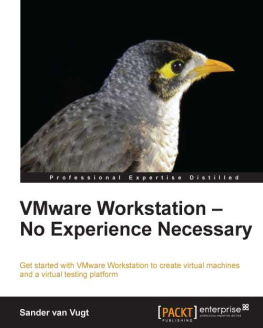Ihre Ankunft in der Firma wird zunchst einmal damit beginnen, sich zu begren und sich gegenseitig vorzustellen. Wenn man sich zum ersten Mal trifft, bentzt man die Gruform How do you do? Man antwortet darauf entweder ebenfalls mit How do you do? oder auch mit Nice / pleased to meet you (Schn, Sie kennenzulernen). How are you? bedeutet eher Wie geht's? und wird meistens beantwortet mit Fine, thanks and how are you?
Example
Mr Horst: Good morning, my name's Mr Horst. I have an appointment with Mr Chester.
Mr Smith: Ah, Mr Horst we've been expecting you! I'm Mr Smith. I'm the assistant purchasing manager at Millers. How do you do?
Mr Horst: Pleased to meet you, Mr Smith.
Mr Smith: As Mr Chester is held up in a meeting until 12.30, he asked me to introduce you to your new colleagues and show you around the premises. Let me first introduce you to our faithful secretary, Mrs Simpson.
Mr Horst: How do you do?
Mrs Simpson: How do you do? Welcome at our company. Did you have a good flight?
Mr Horst: Yes, thank you.
Useful phrases
Introducing / Vorstellen
My name is / I'm
How do you do? / Pleased to meet you.
Let me / May I introduce / This is
Have you met ?
Yes we have. Nice to see you again.
How are you?
Questions and answers / Fragen und Antworten
Did you have a good trip / journey? Yes, thank you.
Is this your first time in ? Yes it is / no it's the second time.
How long have you been here? I arrived yesterday.
How long and where are you staying? I'll be staying for 3 more days in the Plaza hotel.
Are you satisfied with your hotel? Yes, I am thanks. / No I'm afraid I'm not.
Could we have lunch together? Yes. I'd love to. / I'm sorry but I can't. / I'm afraid I have another appointment.
Meeting new colleagues / Die neuen Kollegen
Nachdem man sich kurz vorgestellt hat, interessiert zuallererst, fr welchen Ttigkeitsbereich man jeweils zustndig ist. Die deutschen Berufsbezeichnungen einfach zu bersetzen, macht wenig Sinn, da man im Englischen eher die Ttigkeit umschreibt. Selten nennt man hier einfach die Berufsbezeichnung. Sie werden denn auch hufig gefragt What do you do?, wo Sie im Deutschen fragen wrden Was sind Sie von Beruf?. Nennen Sie als Antwort die Abteilung, in der Sie ttig sind, z. B. I'm in Research & Development (Forschung und Entwicklung), oder den Bereich, fr den Sie zustndig sind: I'm responsible for / in charge of the after-sales service (Kundenbetreuung). Auch die hierarchische Position in der Firma knnen Sie angeben: I'm the managing director (siehe auch Abschnitt Line of business). Manchmal wird auch der Vorgesetzte erwhnt: I report to Mr Johnson.
Lediglich in Formularen oder Vertrgen, wenn nach occupation oder profession (Beruf) gefragt wird, brauchen Sie eine kurze Berufsbezeichnung. Die wichtigsten finden Sie in der unten stehenden Liste.
Example
Mr Smith: Let me introduce you to Mr Mansion, he is the head of human resources / the personnel department and directly reports to Mr Miller.
As he's responsible for our salaries and fringe benefits the whole staff tries to stay friends with him.
Mr Horst: Nice to meet you, Mr Mansion.
Mr Mansion: Nice to meet you too. Now that you're here, could you please send me a list of all your expenses, including the receipts, before your return to Germany?
Mr Horst: Of course, with pleasure!
Useful Phrases
Introduction / Vorstellung
What do you do?
I'm in administration.
He's in charge of advertising
She's responsible for
He's my boss. / He's my superior. / I report to him.
Who does he report to? Who's his boss?
He works part-time / full-time.
I organize the work shifts.
He plans the production programmes.
That's not my job / work.
I supervise production.
He deals with personnel problems.
I'm a temporary worker / temp.
Departments / Abteilungen
| accounting | Buchhaltung |
| administration | Verwaltung |
| advertising department | Werbeabteilung |
| after-sales service | Kundenbetreuung |
| assembly | Montage |
| customer service | Kundenberatung |
| despatch; dispatch | Versand |
| finance department | Finanzabteilung |
| human resources; personnel department | Personalabteilung |
| information technology (IT) | IT-Abteilung |
| legal department | Rechtsabteilung |
| logistics | Logistik |
| marketing | Marketing |
| orders | Bestellungen |
| production | Produktion |
| public relations (PR) | ffentlichkeitsarbeit |
| purchasing | Einkauf |
| research and development (R&D) | Forschung und Entwicklung (F&E) |
| sales and distribution | Vertrieb |
| warehouse | Lagerhalle |
Occupation, profession / Beruf
| accountant | Buchhalter /-in |
| apprentice | Lehrling |
| branch manager | Filialleiter /-in |
| caretaker | Hausmeister /-in |
| clerk; office worker | kaufmnnische(r) Angestellte(r) |
| engineer; technician | Ingenieur /-in; Techniker /-in |
| foreman | Meister /-in (im Betrieb) |
| lawyer | Rechtsanwalt /-anwltin |
| master | Meister /-in (im Handwerk) |
| mechanic | Mechaniker /-in |
| personnel manager; head of the personnel department | Personalleiter /-in |
| plant manager | Werkleiter /-in |
| porter | Pfrtner |
| sales representative; rep | Handelsvertreter /-in |
| salesperson | Verkufer /-in (im Betrieb) |
| secretary | Sekretr /-in |
| temporary; temp | Aushilfskraft |
| trainee | Auszubildender |
Line of business / Branche
Auch wenn Sie Ihre Firma vorstellen wollen, erklren Sie am besten, was Ihr Betrieb herstellt (produces), verarbeitet (processes), importiert oder exportiert (imports or exports), wen er beliefert (supplies) oder in welcher Branche Sie ttig sind (which line of business you're in). Vorsicht brigens mit dem englischen Wort branch: Es bedeutet Filiale oder Zweigstelle, das deutsche Branche mssen Sie mit line of business bersetzen.
Example
Mr Horst: I work for a company called Hirsch ltd.
We are a medium-sized electronics company which initially produced household appliances but since 1990 has specialized in telecommunications.













